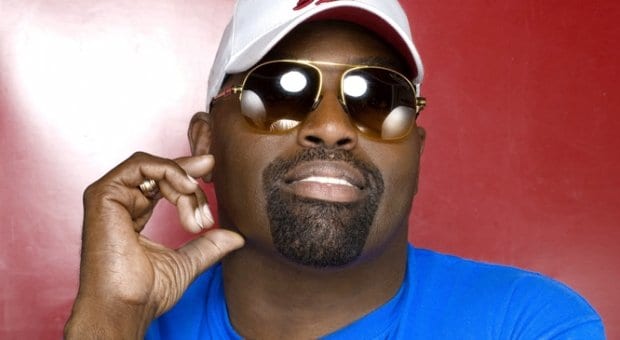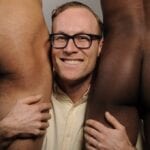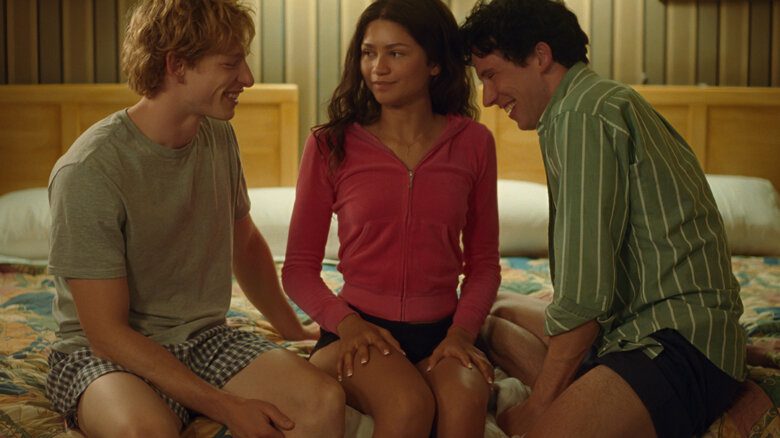Frankie Knuckles, “The Godfather of House,” died Monday, March 31 at the age of 59. Knuckles’s longtime business partner, Frederick Dunson, confirmed the sad news, telling the Chicago Tribune that Knuckles’s death was caused by complications related to diabetes.
The openly gay dance-music pioneer DJed gigs around the planet, touching many with his positive, hopeful attitude and deep knowledge of house music. To celebrate the DJ we loved, we’re reposting a excerpt from an interview Frankie did with Fab magazine in 2012, before his set at the 519 Green Space Pride celebration. Knuckles was also scheduled to play the WorldPride Green Space party in June.
We’ll miss you, Frankie.
_________________________
A world without Frankie Knuckles would mean a world without dance music as we know it today. The man single-handedly brought house music to the clubs in the 1980s by way of Chicago’s black community. And no, it wasn’t Oprah and her friends bouncing to his beats — it was gays.
We take the genre for granted somewhat and have abused it a bit over the years, but as a musical institution it stands strong. As a piece of dance music history, it’s essential, and today it’s perhaps more important than ever.
“Anytime I get to play for the gay community is a big deal for me. It’s like coming home,” he says.
The openly gay DJ knows his audience oh so well. When asked if he thinks ‘mos understand the music better than a straight crowd, the answer is a resounding no.
“The one thing I find that [straight] crowds have in common with the kids of the gay community is their love and respect of the music itself,” he says. “In many instances the straight crowd will be more receptive to the new house tunes than the gay community. I’ve had children in the gay community diss me because I don’t play circuit music, tribal or enough Gaga. I’ve been at this job a long time. It’s my life and my life’s work. I try to remain as original as possible.”
These days house music can be heard in everything: chart-topping hits from Nicki Minaj, anything from Kylie, Adam Lambert’s new single and the new Scissor Sisters sound are all drenched in the genre. Seems dance music has come a long way since the dark, sweaty days of its inception.
“As an American I haven’t seen much progression on these shores,” Knuckles says. “One of the most disappointing things to me was witnessing how the gay community abandoned house music in the late ‘90s in favour of hip hop. House was born in the black gay community in Chicago. Then it got its legs at legendary super-club Paradise Garage. Ultimately, the British took the ball and ran with it. The world then climbed on board and the rest is history.
“To see the community turn its back on a home-grown entity for a side of the industry that glorifies homophobia — I found it heartbreaking. But I don’t let it hold me back. I take my act on the road in hopes of bringing things back to where they once were.”
History aside, where is the heart-pounding genre headed now that gays seem to be once again embracing it?
“That is the $64,000 question,” Knuckles says. “Here’s the answer: I have no idea.”
The interview was first published in Fab Magazine, June 2012.


 Why you can trust Xtra
Why you can trust Xtra


